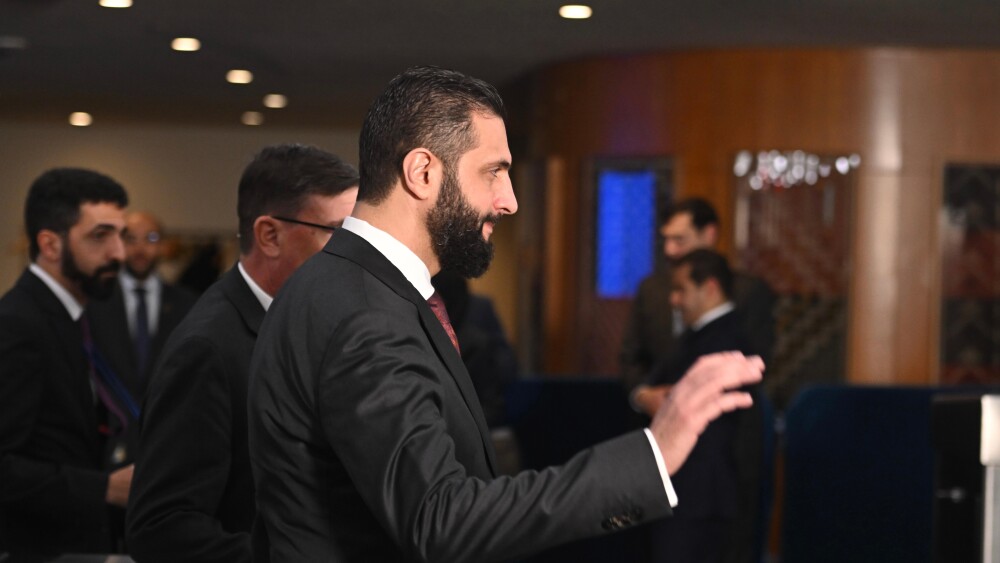The new Syrian Transitional Government, led by the Hay’at Tahrir Al-Sham- (HTS) affiliated Ahmad al-Sharaa, claims to have shed its jihadist past and embraced a future of justice and accountability. Last week, however, the first real test of that commitment failed spectacularly, exposing the regime’s promise of impartiality as a calculated charade designed to deceive the international community.
This official conclusion, reported this week, is not just a judicial error; it is a profound betrayal of justice and a dangerous political whitewash.
The development is centered on the commission established by the new government to investigate massacres that occurred on the Syrian coast. Instead of confronting the clear sectarian motives behind the violence, the commission dismissed the killings of Alawites—the religious minority associated with the former Assad regime—as mere “revenge-based” acts caused by weak state control over armed groups.
This official conclusion, reported this week, is not just a judicial error; it is a profound betrayal of justice and a dangerous political whitewash. It proves that the Islamist-dominated government is unwilling or unable to confront the deep-seated ideological poison of sectarianism that fuels groups like HTS.
The cynical deception of “revenge”
The distinction between “revenge-based” violence and “sectarian” violence is a cynical piece of political maneuvering. The commission claimed that the killings targeted Assad regime supporters specifically, rather than Alawites as an entire sect. But in the reality of the Syrian conflict, this distinction is meaningless.
Many Sunni extremist groups—including those from which HTS draws its ideological lineage—conflate individuals with an Alawite identity with supporters of the Assad regime. This conflation makes sectarian identity the primary basis for selecting victims, even when the violence is framed as retaliation for past regime violations. The victims’ identity is the target, regardless of their political affiliation.
By officially ruling out sectarian motives, the HTS-led government is attempting to absolve the perpetrators of the most toxic, ideologically driven crimes.
The commission’s conclusion is flatly contradicted by compelling evidence. Most victims of the massacres were Alawite civilians, and survivors of the attacks insist the violence was explicitly sectarian. By officially ruling out sectarian motives, the HTS-led government is attempting to absolve the perpetrators of the most toxic, ideologically driven crimes.
This failure of impartiality is a non-starter for any credible government. True transitional justice demands a truthful accounting of the ideological roots of violence. By refusing to acknowledge sectarianism, al-Sharaa’s government is protecting its hardline base and signaling to minority communities that their safety will remain contingent on political expediency.
The ideological threat of normalization
This justice charade is directly relevant to the concurrent diplomatic offensive being waged by the new regime. al-Sharaa, who was recently removed from the UN’s ISIL/Al-Qaida sanctions list in a US-sponsored vote last week, is actively seeking global recognition and reconstruction funds.
The U.S. and its allies are engaging with him because they hope to use him as a lever to counter Russian and Iranian influence in the region. But this political pragmatism is compromising the fundamental commitment to fighting Islamist ideology.
The problem is systemic: an Islamist regime cannot credibly investigate its own ideological allies. This is why the Syrian justice commissions suffer from pervasive transparency issues. They refuse to disclose the identities of suspects and have acknowledged the arrest of only one minor official. Human rights watchdogs have demanded the publication of commission findings, but Damascus has predictably resisted.
The demand for moral clarity
The West must not be fooled by this political theater. The path to a successful Syrian transition—one that does not become a permanent threat to Israel and regional stability—must be rooted in moral clarity and genuine accountability.
The goal is not merely a change of flags in Damascus; it is the fundamental eradication of the ideology of terror.
The failure of the justice commission this week proves that al-Sharaa’s government is a fragile entity built on the same ideological poison as the regime it replaced. By normalizing HTS’s control and accepting its self-serving version of justice, the international community risks validating the strategy of state capture by extremist groups.
America and its allies must immediately demand full transparency and an independent review of the findings of the coastal commission. We must ensure that reconstruction aid is channeled exclusively through mechanisms that bypass the HTS-affiliated government, preventing resources from falling into the hands of those who actively enable sectarian violence.
The goal is not merely a change of flags in Damascus; it is the fundamental eradication of the ideology of terror. al-Sharaa is proving that his new government is a hollow shell, masking a core commitment to an ideology that remains the greatest threat to regional peace.
Published originally on November 20, 2025.







